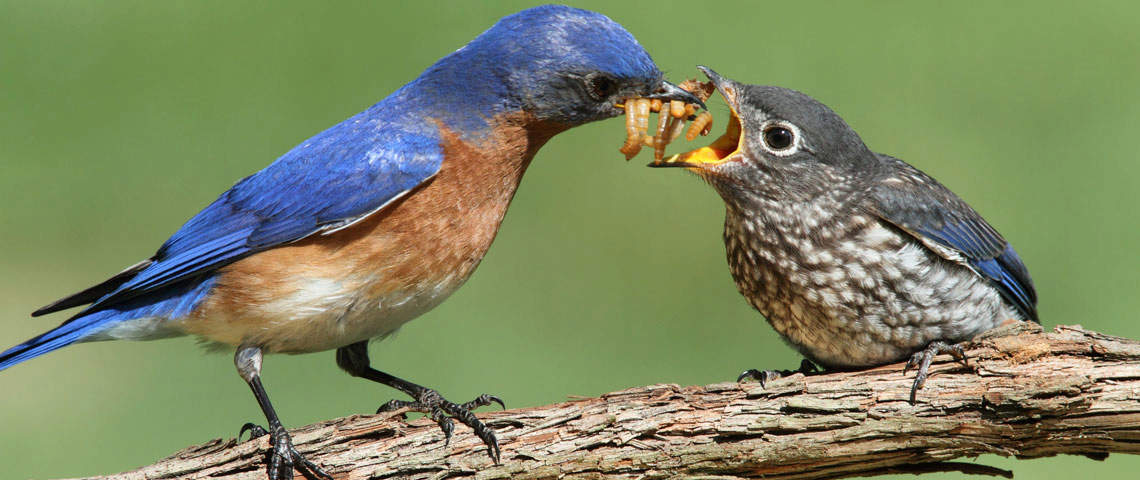
Caring for Baby Birds: A Comprehensive Guide
Introduction
Baby birds, also known as nestlings, are vulnerable and delicate creatures that require specialized care to survive and thrive. Whether you encounter an orphaned or injured baby bird, understanding their unique needs is crucial for their well-being. This comprehensive guide will provide you with the essential knowledge and techniques to care for baby birds effectively.
Assessing the Situation
Before handling a baby bird, it’s important to assess the situation and determine if intervention is necessary.
- Orphaned Birds: If you find a baby bird alone on the ground, it may be orphaned. Observe the bird for a few hours to see if its parents return. If they do not, the bird may need your help.
- Injured Birds: If you suspect a baby bird is injured, handle it with extreme care. Look for any visible wounds, broken bones, or other signs of distress.
Handling Baby Birds
- Wear Gloves: Always wear gloves when handling baby birds to avoid transferring bacteria or scents that could harm them.
- Support the Head and Neck: When holding a baby bird, gently support its head and neck with your fingers. Avoid squeezing or holding it too tightly.
- Keep Warm: Baby birds are unable to regulate their body temperature, so keep them warm by placing them in a small, lined box with a heating pad or warm water bottle.
Feeding Baby Birds
- Appropriate Food: The type of food a baby bird needs depends on its species. Consult with a veterinarian or wildlife rehabilitator to determine the correct diet.
- Feeding Frequency: Baby birds need to be fed frequently, every 15-30 minutes during the day. As they grow, the feeding frequency can be gradually reduced.
- Feeding Methods: There are several methods for feeding baby birds, including:
- Syringe Feeding: Use a small syringe to gently squeeze food into the bird’s mouth.
- Spoon Feeding: Use a small spoon to gently place food on the bird’s tongue.
- Tube Feeding: For severely injured or weak birds, a feeding tube may be necessary.
Hydrating Baby Birds
- Water Source: Baby birds need access to water to stay hydrated. Provide a shallow dish with clean water or use a syringe to gently drip water into their mouth.
- Electrolyte Solution: If a baby bird is dehydrated, an electrolyte solution can help restore its fluid balance. Consult with a veterinarian for the appropriate solution.
Cleaning and Sanitation
- Clean Bedding: Keep the baby bird’s nest or box clean by regularly changing the bedding. Use soft, absorbent materials such as paper towels or cotton balls.
- Hygiene: Wash your hands thoroughly before and after handling a baby bird. Clean any equipment used for feeding or cleaning with hot, soapy water.
Housing Baby Birds
- Nest Box: Provide a small, enclosed nest box for the baby bird to feel secure and protected. Line the box with soft materials such as cotton balls or shredded paper.
- Temperature Control: Baby birds need a warm environment. Maintain a temperature of around 90-95°F (32-35°C) using a heating pad or warm water bottle.
- Ventilation: Ensure the nest box has adequate ventilation to prevent overheating or moisture buildup.
Monitoring Baby Birds
- Daily Weighing: Weigh the baby bird daily to monitor its growth and health. Consult with a veterinarian to determine the expected weight gain for the species.
- Behavior: Observe the baby bird’s behavior for any signs of distress, such as lethargy, difficulty breathing, or excessive vocalizations.
- Veterinary Care: If you notice any concerning symptoms, seek veterinary care immediately.
Releasing Baby Birds
- Fledging: Baby birds typically fledge (leave the nest) when they are fully feathered and capable of flying.
- Gradual Release: Gradually acclimate the baby bird to the outdoors by placing it in a protected enclosure for short periods.
- Final Release: When the baby bird is strong and independent, release it in a suitable habitat where it can find food and shelter.
Additional Tips
- Avoid Human Contact: Handle baby birds as little as possible to prevent imprinting (becoming attached to humans).
- Socialization: If possible, provide baby birds with exposure to other birds of the same species to encourage socialization.
- Patience and Care: Caring for baby birds requires patience, dedication, and a deep understanding of their needs. Be prepared to provide round-the-clock care until they are able to fend for themselves.
Conclusion
Caring for baby birds is a rewarding but challenging task. By following these guidelines and seeking professional advice when necessary, you can provide these vulnerable creatures with the best possible chance of survival and a healthy life. Remember, every baby bird is unique, and their specific needs may vary. Always prioritize their well-being and seek guidance from experts when in doubt.
